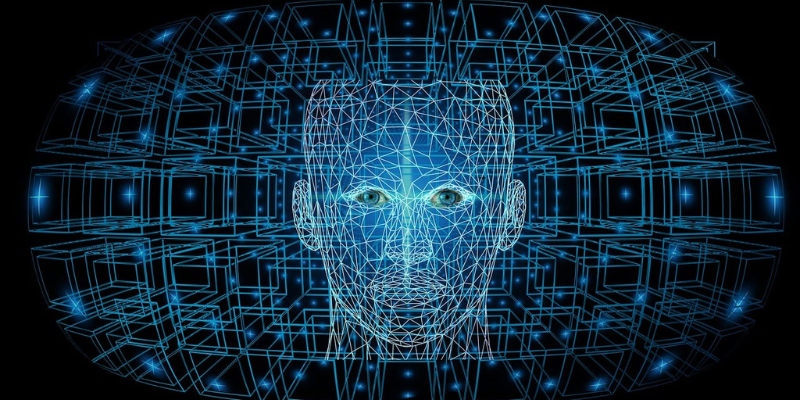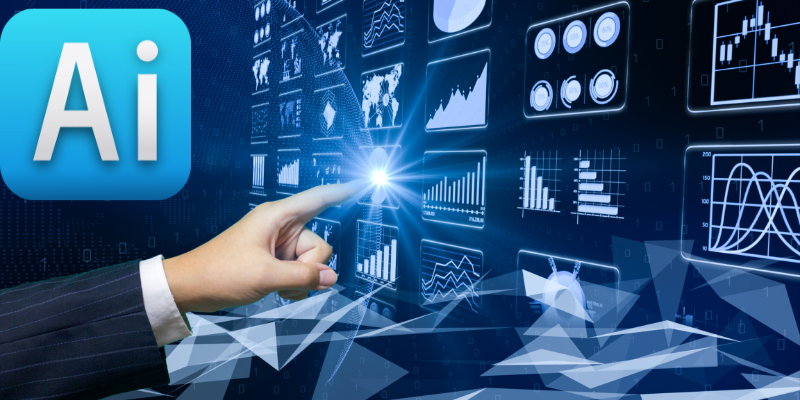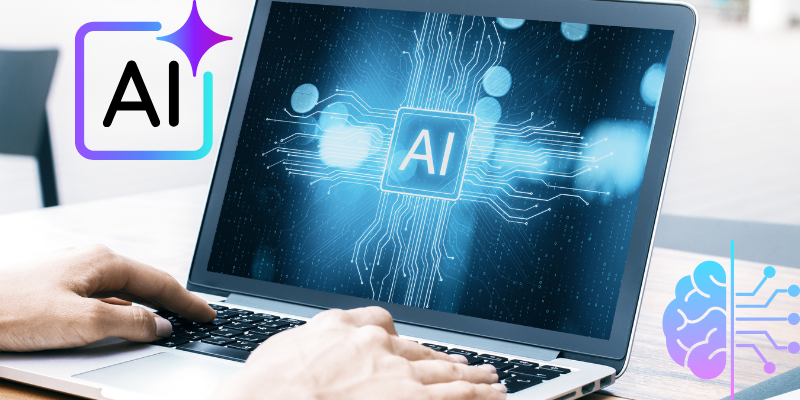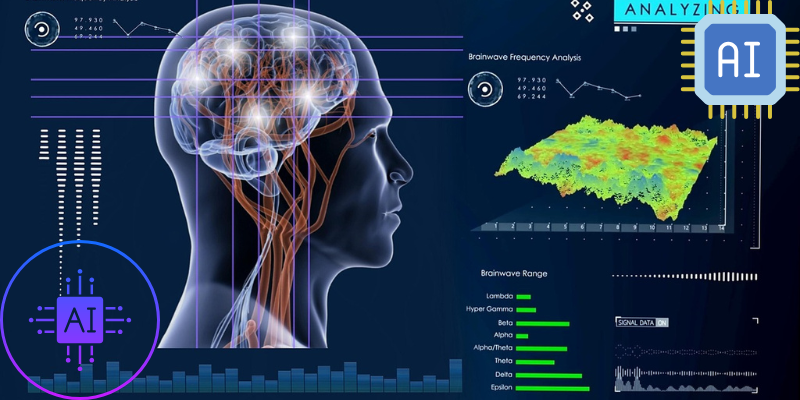Dangers of Artificial Intelligence A Complete Guide
Published: May 3, 2025

Dangers of Artificial Intelligence The industrial sector, social work practices, and communication infrastructure now use AI technologies to achieve worldwide transformations. The examination of data and the ability to make professional decisions are two significant advantages Artificial Intelligence technology provides to societies. Operation through the powerful artificial intelligence system requires users to take necessary risks. The public needs control over potential AI cataclysmic capabilities and complete comprehension of AI operational capacity and its numerous emerging ethical effects from the advancing technology. Users can understand the many operational threats across communities and individual businesses by reading the complete analysis of all artificial intelligence risks.
Artificial intelligence systems develop capabilities with performance capabilities that exceed their existing operational range. New applications that result from artificial intelligence implementation create manageability difficulties that exceed operational performance improvements. Artificial intelligence leads to three fundamental security issues because its impact results in job loss, privacy violations, and complex moral dilemmas that demand fundamental ethical assessments. Multiple business sectors currently deploy AI technology, and researchers are trying to understand all outcomes that will occur from full AI implementation. The section examines worldwide AI system risks using threat evaluation and damage assessment, leading to global anxiety scoring.
All evidence regarding artificial intelligence dangers is available within this book publication. The research document explains various artificial intelligence system failures, policy creation methods, and numerous detrimental consequences related to artificial intelligence. A complete explanation regarding all artificial intelligence threats appears in this document at a level of understanding accessible to anyone. All available systems that manage direct technology risks are explained throughout the paper.
Table of Contents
The Rising Threat of AI: Understanding the Risks
Artificial Intelligence Limitations
Types of Dangers of Artificial Intelligence
- 3.1 Risk of AI in Employment
- 3.2 Ethical Dilemmas in AI
Adverse Effects of AI on Society
Artificial Intelligence and Business: A Double-Edged Sword
Creating an Artificial Intelligence Policy
How to Mitigate the Dangers of AI
Conclusion
1-The Rising Threat of AI: Understanding the Risks
Dangers of Artificial Intelligence The present advanced technological development traces its origin to artificial intelligence innovations. Beam-like artificial intelligence technology resolves all issues by implementing automatic systems that provide advantages to medical devices and patients in hospitals. Artificial intelligence systems multiply in speed because their adoption enables numerous security issues that disrupt normal human functions. Two security risks emerge from limited AI system operations because they simultaneously harm personal privacy protection while leading to inaccurate, discriminatory outcomes derived from limited decision-making platforms.
The quick development of artificial intelligence produces critical governance problems because leaders need more time to establish proper regulatory frameworks. Cognitive decision systems run by algorithms fall short in human, compassionate decision-making and ethical reasoning but continue producing erroneous outcomes from data processing. The discriminatory ethical problems in this situation lead to substantial negative results due to their implementation. The AI recruitment technology inadvertently exhibits bias while picking certain demographic groups that uphold present social disparities.
Dangers of Artificial Intelligence The research examines the risks associated with AI systems, which impact income loss and privacy breaches while causing physical harm to both interfaces and users. Assessment findings related to these risks will become evident throughout this section of the future inspection.
2-Artificial Intelligence Limitations

Dangers of Artificial Intelligence technology increases industrial speed, but several operational issues impact its performance in industrial systems. Numerous operational barriers exist in AI because AI functions at a level that exceeds human understanding abilities. Machines operate data quickly, yet they cannot match human-level data processing abilities. To decide on matters, people should thoroughly understand complicated situations.
All digital systems require processed data for operational functions, making data management the central operational restriction. The quality of input information affects AI system performance because operational problems surface in computational outputs. Multiple medical institutions and criminal justice operational frameworks encounter major problems when they implement artificial intelligence systems.
Dangers of Artificial Intelligence cannot grasp complex socioeconomic conditions combined with environment-based information, generating various incorrect automated outputs.
Operational issues emerge from AI systems because they require substantial power and energy, which makes establishing operational requirements financially demanding and energy-intensive. Every industrial sector that artificial intelligence enters faces sustainability problems because of environmental concerns that cause increasing carbon emissions.
3-Types of Dangers of Artificial Intelligence

Dangers of Artificial Intelligence systems create several types of danger during operational execution when results appear throughout program execution. Specific evaluation methods are needed to construct analytic frameworks that detect significant safety risks triggered by system-level impacts in social systems.
1.Risk of AI in Employment
Dangers of Artificial Intelligence Experts from the AI domain have established the primary concern about employment issues resulting from AI technology. Research efforts in Artificial Intelligence yield unstable job environments, which allow synthetic vehicles and AI-powered digital assistants to handle tasks previously performed by employees in customer service. Once automated technology-based systems take over their functions, human-operated positions will be removed on a tank-scale basis.
AI imposes the most significant economic effects by altering fundamental business operations and their basic organizational principles. Most employment risks due to AI arise from displacing positions held by untrained personnel in various professional industries. Health gaps between social classes increase through automated procedures implemented in economic sectors using AI technology.
2.Ethical Dilemmas in AI
Dangers of Artificial Intelligence The moral values developers embed during development establish the essential principle requirements in systems. Unintended built-in biases appear unpredictably in the development of AI technology because they emerge throughout the building process. Historical data analysis enables learners to maintain existing biases in artificial intelligence systems since previous data records reveal discriminatory factors while exhibiting distribution errors.
For example: During development, AI systems automatically acquire discriminatory behavior by processing faulty arrest data, which contains negative attitudes toward minorities. Employee screening systems use logical analysis methods to reject candidates whose social profiles differ from societal norms, thus causing workplace diversity to decline through stereotyping behavior.
Dangers of Artificial Intelligence Implementation of AI technology depends on individuals who identify moral issues inside machine systems before deployment. The development of AI policy needs fundamental elements between fair standards, operational accessibility, and output traceability to safeguard human security while decreasing mistakes and discriminatory results.
4-Adverse Effects of AI on Society
Dangers of Artificial Intelligence The public supports artificial intelligence despite society’s multiple adverse effects from this technology. The existing social divide between equipment proprietors and other citizens will continue since technical progress consistently favors equipment owners over others. AI disrupts social privacy by requesting broad-scale personal record maintenance while conducting lengthy evaluation procedures before delivering its information outputs.
People want to witness the appropriate methods by which artificial intelligence systems should interrupt their information technology systems for political purposes. The algorithms deployed by manipulators to command public opinion spread extensive falsehoods, which deteriorates electoral democratic operations.
Dangers of Artificial Intelligence The integration of Artificial Intelligence into everyday operations creates toxic effects that affect workers in all areas of public employment and every citizen. Advanced AI monitoring systems operated by governments and corporations perform continuous activity tracking, which elicits major worries in most individuals.
5-Artificial Intelligence and Business: A Double-Edged Sword

Dangers of Artificial Intelligence The operating structure of AI produces beneficial solutions for businesses yet also produces harmful side effects. AIT implements essential capabilities which create dual advantages for improved business operational performance and executive decision-making as well as customer service system functionality. Business operations that use artificial intelligence lead to negative impacts because they substitute workers with automated machines that previously needed human workers.
Dangers of Artificial Intelligence Structure must protect business organizations since their information can be compromised due to artificial intelligence system defects. Enterprises that use AI for data management face heightened cyber threats that endanger both their internal business information and corresponding privacy. Business organizations must design AI policies that integrate their data protection systems with customer privacy regulations.
6-Creating an Artificial Intelligence Policy
Dangers of Artificial Intelligence affects global operations extensively, so developing an AI policy requires immediate attention. Both governments and organizations should endorse moral guidelines to establish proper procedures for artificial intelligence systems management and operational tasks. Several new legislation standards require visible AI systems through controlled process reporting while defining neutral criteria for AI decision engines. Implementing development policies creates public benefits through security programs linked to social advantages that serve community needs.
7-How to Mitigate the Dangers of AI
Dangers of Artificial Intelligence Proper operational safety approaches that connect with present security standards can bring security threats to humanity under control. Here are a few strategies:
- Invest in education and reskilling: Employers must create educational programs that enable their staff members to learn new skills because AI system deployments lead to job position transitions in the market.
- Regulate AI technology: Dangers of Artificial Intelligence The development guidelines at the national level guarantee that public institutions can create their regulations for AI systems together with ethics guidelines for operators. Every stakeholder working on the development process requires separate evaluation because they must fulfill each requirement completely.
- Implement ethical AI frameworks: Dangers of Artificial Intelligence Organizations’ programmers must implement ethical AI frameworks that maintain system safety and fairness applications.
- Prioritize data privacy and security: AI systems operate best when two essential operational requirements exist to defend data privacy and protect sensitive information.
Conclusion
Dangers of Artificial Intelligence Technology based on artificial intelligence represents a significant development because its positive contributions to development exceed social disadvantages. Knowledge of dangerous risks enables people to protect themselves by acquiring adequate safety methods. AI system implementation will provide worldwide advantages only when people fully grasp the system’s technical boundaries and moral risks.
Dangers of Artificial Intelligence Effective educational training allows AI systems to recognize threats and create better hazard protection measures than their basic threats. When used correctly, AI systems enhance human advancement by reducing possible dangers to humans.
FAQs
1. It is essential to develop an identifiable list of threats that artificial intelligence systems create for human beings.
Workplaces experience four dangers from AI systems while dealing with three problems that affect private data, generating ethical complications and possible regulatory issues.
2. How does AI affect employment?
Engineered systems execute automatic responsibilities, which leads to substantial staff reductions in transportation entities, manufacturing plants, and customer service departments.
3. Can AI be biased?
AI systems show discriminatory behavior by processing incorrect data they receive from sources, which leads to discrimination against employment candidates, law enforcement trainees, and medical patients.
4. How can AI impact privacy?
Large-scale personal data management by AI systems creates a fundamental opposition between data protection standards and surveillance requirements because unauthorized access results in confidential information loss.
5. States must establish particular decisions to decrease the risks associated with AI systems.
Minimizing AI technology risks requires standard ethical creation between multiple parties, employee training, and specific rules that define AI systems’ operations.

- Be Respectful
- Stay Relevant
- Stay Positive
- True Feedback
- Encourage Discussion
- Avoid Spamming
- No Fake News
- Don't Copy-Paste
- No Personal Attacks



- Be Respectful
- Stay Relevant
- Stay Positive
- True Feedback
- Encourage Discussion
- Avoid Spamming
- No Fake News
- Don't Copy-Paste
- No Personal Attacks





